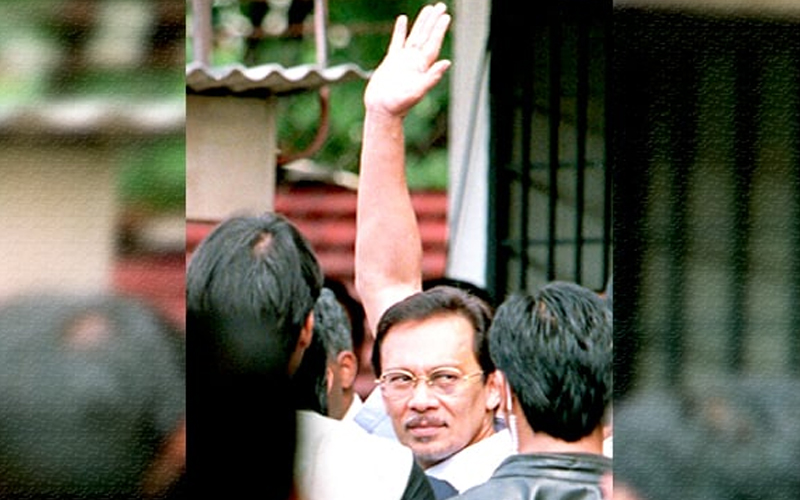
From Liew Chin Tong
A quarter of a century ago today, Anwar Ibrahim was sacked as deputy prime minister, and subsequently brutally detained, beaten, and jailed from Sept 20, 1998 to Sept 2, 2004. From the halls of power, as Anwar puts it in one of his earliest prison letters, he descended into “the labyrinths of incarceration”.
In a piece entitled “Speaking for the Reformasi Generation” on this day in 2008, the year which saw a political tsunami that broke Barisan Nasional’s two-thirds majority in Parliament, I wrote that “from the ruins of Anwar’s previous political life, however, a Reformasi generation arose”.
“Throughout the long decade, despite being jailed the first six years and spending a considerable amount of time overseas in the immediate two years after release, Anwar aroused passionate support and devotion from many, some out of sympathy while others felt that he embodied the national quest for change and maturity.
“But, the beauty of this long march is that Reformasi was not just about Anwar; it was very much about us.”
On Aug 31, 2023, at the main observation canopy for the National Day celebration, I watched Prime Minister Anwar walking up to the stage to be saluted by the Royal Malay Regiment. From the presumptive successor to prisoner, to a long and difficult road as an opposition leader and prison again, Anwar took a major 25-year detour to reach the pinnacle of the nation.
My generation grew up during the haydays of Malaysia’s economic takeoff between 1988 and 1997 when the economy grew at an average of 9% annually. The world was full of possibilities and hope.
After Vision 2020 was unveiled in February 1991, there was at least 14 years until 2005 that the national discourse was not racial, and the idea of a Bangsa Malaysia was broadly accepted.
The Asian Financial Crisis hit in 1997, when I turned 20. The crisis was a major setback for the Malaysian economy and some of its scars and effects still linger to this day. The sacking of Anwar in 1998 marked the end of a strong authoritarian regime with broad-based popular support. Successive governments struggled to win the hearts and minds across the board.
Coupled with China’s entry into the World Trade Organization in 2001, which drew most investments into manufacturing from around the world into China, leaving Southeast Asian economies such as Malaysia to suffer premature deindustrialisation.
In hindsight, the last 25 years saw Malaysia stuck being neither the worst nor the best in class, and enveloped in a sense of self-doubt, pessimism and the lack of confidence and hope.
Yet the greatest contribution of Reformasi was that a generation of Malaysians, many now in the government, believe that the nation deserves better, that everything is possible (because we have seen the impossible happen, in a good way, such as Anwar coming back from hell to the top), and that we could and should remake the nation for the better.
It is my fervent hope that Anwar would end Malaysia’s lost decades, lead the nation to a second economic takeoff while rejuvenating the institutions, and build an optimistic, outward-looking, and tolerant Bangsa Malaysia. - FMT
Liew Chin Tong is DAP’s political education director and a deputy minister in Anwar Ibrahim’s Cabinet.
The views expressed are those of the writer and do not necessarily reflect those of MMKtT.



No comments:
Post a Comment
Note: Only a member of this blog may post a comment.